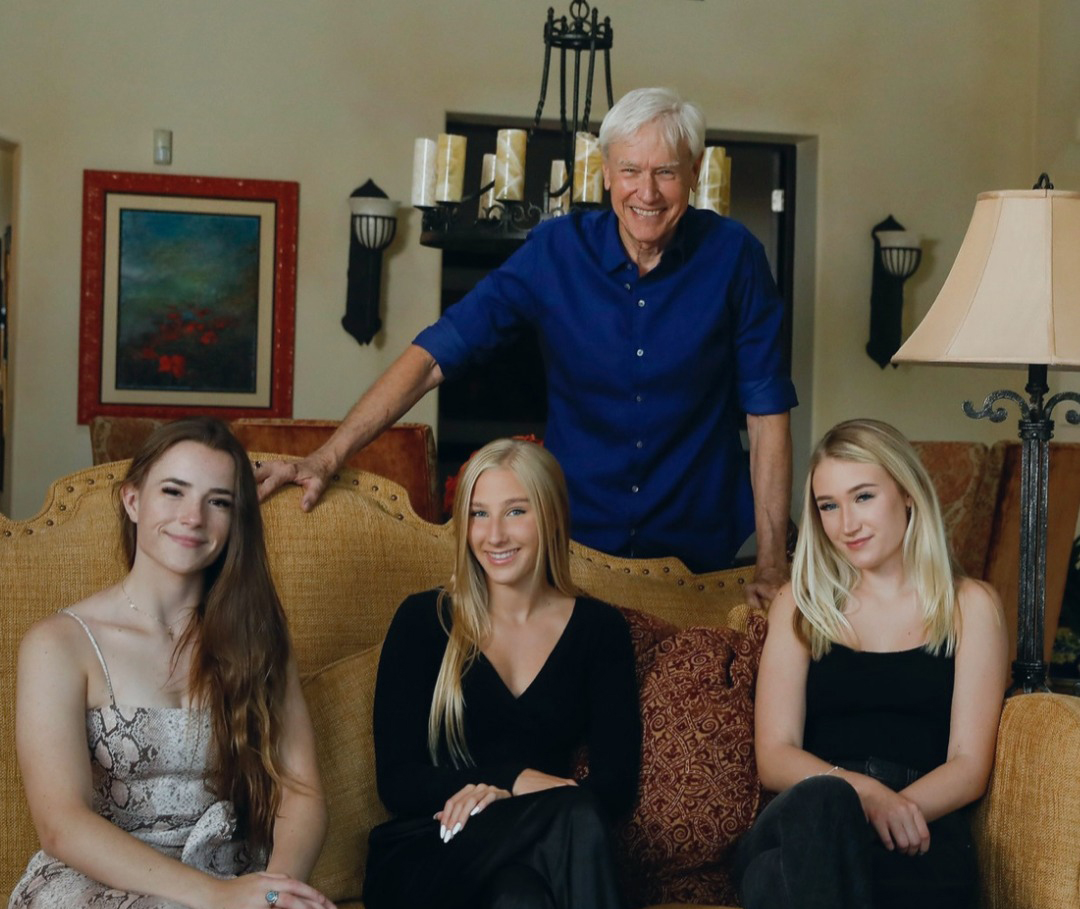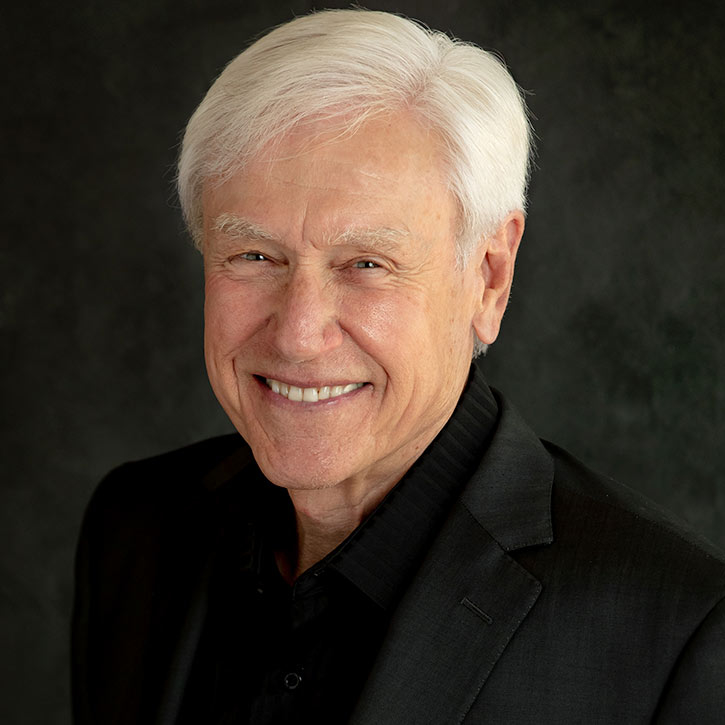A Case for Hope in Challenging Times
Ben Lytle
 Widespread fear and pessimism are more far-reaching than ever before in my lifetime. You see it in people’s eyes as they go about their business with greater urgency. Or when they are more impatient with minor inconveniences. Hypersensitivity and intolerance make more topics off-limits. Optimistic people are a minority, even if they concede that things may worsen before they get better. It may surprise you that pervasive pessimism is not new, nor is the pandemic solely responsible. Despite record prosperity, developed countries have reported increased pessimism about the future for over a decade. Is pessimism justified, or could it be a form of mass hysteria? Either way, what can each of us do about it?
Widespread fear and pessimism are more far-reaching than ever before in my lifetime. You see it in people’s eyes as they go about their business with greater urgency. Or when they are more impatient with minor inconveniences. Hypersensitivity and intolerance make more topics off-limits. Optimistic people are a minority, even if they concede that things may worsen before they get better. It may surprise you that pervasive pessimism is not new, nor is the pandemic solely responsible. Despite record prosperity, developed countries have reported increased pessimism about the future for over a decade. Is pessimism justified, or could it be a form of mass hysteria? Either way, what can each of us do about it?
Facts Support Optimism
Living Conditions
The first Industrial Revolution, in the 1760s, led to widespread improvement in living conditions, with the majority of the population living in extreme poverty dropping from 80 percent to 20 percent by 1800. Recent progress has been even more staggering, with one billion people lifted from extreme poverty since 1990. Innovations in the pipeline promise continued improvement.
Working Conditions
Work was historically dangerous, tedious, repetitious, and physically demanding. Today’s workplaces can be stressful but are safer than ever. In three decades, most physically demanding, dangerous, and repetitive jobs will be automated. “New Work” will be oriented toward creativity, problem-solving, and complex human relationships that are difficult to automate and better suited to tap human potential. There will be job losses during the transition, though likely not extreme, due to population declines in developed countries.
Life Expectancy
Life expectancy has more than doubled since 1900 and will likely double again in the next one hundred years. Scientific progress using the fusion of medical research with automation in the diseases of aging and the aging process could lead to more than linear improvement in life expectancy. Innovations like driverless vehicles and remote health monitoring will also reduce premature deaths. Innovations will support healthier lifestyles through more effective diet, exercise, sleep- and stress-management programs, pharmaceuticals, and home and personal health monitoring innovations. As a result of these innovations, most people under 50 years of age today are likely to see their 100th birthday. Among today’s infants are likely the first people to reach 150 years of age.
Uncivilized Behavior
A common complaint today is that people are becoming uncivilized and more violent. Evidence supports the opposite conclusion. Brutal executions were public celebrations with children present only a couple of hundred years ago. Duels, to the death, settled many disputes. Bearbaiting and cockfighting were popular local “sports.” Roads were unsafe without private security. Slavery and indentured servitude were accepted worldwide. Wars routinely plagued much of the world until as late as the 1990s.
Large-scale infantry warfare is increasingly ineffective, as Russia has learned from its invasion of a much smaller Ukraine. War will continue to evolve into regional conflicts, proxy wars, and targeted battles between drones or special forces and terrorist cells. Bloodless but efficient and cost-effective cyber warfare is the likely long-term future.
Violent crime has fallen steadily for the last two decades. Most violent crime is highly concentrated in a handful of US cities, neighborhoods within those cities, hot spots within the areas, and among a few extremely violent career criminals. Recent spikes in violent crime have followed the same pattern, with violence largely spilling outward from hot spots.
Today’s geopolitical threats, rancorous political and cultural divide, and coarse, uncivil language are unnerving, but historically have been a prelude to better times. We can take some comfort that socially accepted brutality and widespread lawlessness are unacceptable in most of the world following a decades-old and likely irreversible trend.
End of Days
Some pessimists accept the arguments for optimism above but nevertheless envision end-of-the-world scenarios from a deteriorating environment, a superpower nuclear war, another pandemic, or some other catastrophe. Impending doom has been a popular fantasy since humankind’s earliest days. Perhaps the end-of-days scenarios are inventions of overactive egos struggling to fathom a world without them in it. History and rational thinking suggest that a humanity-ending event (if one ever arises) will be a threat we do not anticipate instead of one we recognize. As resourceful creatures, we innovate to avoid or mitigate known threats.
Possible Causes of Widespread Pessimism
Many of us have become irrationally fearful and hopeless. Worse, many people need to spread their gloom to others. Let’s examine some possible causes of widespread pessimism.
Projection?
Does our personal opinion of the future tell us accurately what the future will be? Or does it more accurately tell us about ourselves? Do we project inner anxiety and fears outward to create a distorted worldview? Are we so accustomed to instant gratification and the good life that we become fearful and angry when something disturbs it? Do we expect perfection, stability, and security that has never existed in nature and never will? Everyone is entitled to form their own judgments, but do you observe others or yourself defaulting to the negative instead of a balanced view of probabilities about what the future might hold?
Age-Related Pessimism?
Older people tend to be less optimistic. The world population is aging and declining everywhere except Africa and the Middle East as life expectancy improves and birth rates fall. Population decline and aging will become worldwide unless birth rates increase. Age-related pessimism reduces the quality of life and increases the risk of disease and death in older persons. Pessimistic older adults may influence younger people through their negativity.
Hunter-Gatherer Brains in a Digital World?
Humans are hard-wired to be anxious and fearful—some of us more than others. Death came early to our ancestors from animals and other humans, with minor injuries and diseases until the last hundred years. They survived and dominated the earth partly because their ego and shadow functions alerted them to danger and urged them to control their environment. The accelerating change of the last three centuries has altered our risks faster than our psychological anatomy can adapt. Our ego is unnecessarily aggressive, as demonstrated in board rooms, legislatures, checkout lines, and driving. Defensiveness and fear cause us to see danger where little exists and miss real emerging risks. Examples include pandemic responses and obsolete fears of overpopulation when underpopulation is the New Reality.
A Toxic Environment of Fear
Fear sells and enables a culture of manipulation. Far too many politicians use fear to gain power and demonize opposition instead of seeking wise compromise. Interest groups treat every minor setback as a catastrophe. Some religions warn that heaven is attainable only through their dogma. Many educational institutions foster elitism and narrow-mindedness instead of critical thinking, expanded perspective, and wisdom. News media unashamedly substitutes divisive propaganda for unbiased journalism. Social media promotes popularity over meaningful relationships while using algorithmic messaging to promote discord. Entertainment media often serves up coarseness, violence, and comic book fare instead of content that inspires or enlightens. Many advertisers use fear of disease and inadequacy to sell products. It takes a strong, wise person to remain positive despite unrelenting manipulation through fear.
Loss of Perspective
Many of us have tragically lost loved ones to COVID-19. Life today is challenging, with many unknowns. But we forget that life has always been challenging and always will be, and yesterday’s challenges were much more severe.
Compare today to 1914 through 1963. World War I killed 20 million people. As it ended, the Spanish Flu pandemic spread worldwide, causing a higher percentage of deaths in the population than COVID-19 today. The Spanish Flu killed young and healthy people like my twenty-eight-year-old grandfather. People were defenseless against the Spanish Flu, unlike the COVID-19 pandemic’s vaccines, therapeutics, and modern healthcare systems. Spanish Flu survivors faced the Great Depression less than a decade later with historic unemployment, shortages, suffering, death, and loss of hope. World War II and 70 to 85 million deaths immediately followed the Great Depression. The Cold War followed WWII when human extinction from nuclear war came very close from 1949 until the Cuban Missile Crisis of 1963.
Would any of us trade our twenty-first-century lives for those of the twentieth-century? Shouldn’t we find comfort in humanity’s three million years of unrelenting upward progress, even with its ups and downs? Shouldn’t probability alone suggest a 50-50 chance of a better future? Doesn’t the pace of today’s innovation (such as a COVID-19 vaccine delivered in months) increase the odds of a better future well past 50 percent?
Is Pessimism Healthy?
Does it matter if people are pessimistic? I think it matters a great deal. Irrational fear and pessimism do not soothe, enlighten, or improve a single life. Suicide is the second leading cause of death today among people aged 25 to 34. Does widespread pessimism and fear contribute to that tragic and unnecessary statistic? If so, the young deserve better from us. Irrational optimism is also unhelpful but extremely rare. Why not replace fear, pessimism, and negatively biased egos with critical thinking and an enlightened, balanced perspective of the past and future?
I’m only one person—what can I do?
The world changes one person at a time, and that is true today more than ever. Each of us has a vast megaphone through the Cloud, social media, and our traditional social circles. Speaking one’s mind has never been more socially acceptable. We can use our voices to encourage wisdom, optimism, and commitment to create a better world within our reach.
Elevate conversations to the bigger picture and the longer term.
Humans are an ancient, resourceful, resilient species. An estimated 122 billion before us marched upward for three million years through valleys of despair to emerge each time higher and better. Our bottomless capacity for innovation overcomes seemingly impossible adversity and strengthens us each time for what lies ahead.
Become a beacon of hope for a more civil, wise society.
Speak to the positive when others generalize, demonize, or polarize. Encourage healing over dividing. Remind others how negativity and fear play into manipulators’ hands. Defend differing points of view. Ask others to refrain from harsh judgments of those with whom they disagree. Those who disagree are not evil or stupid; they are only trying to find their way through a confusing, rapidly changing time. Speak to the innate good in most people. Describe heroes as the wisest among us instead of the nastiest advocates. The unwise browbeat to dominate. The wise respectfully disagree and communicate to achieve understanding.
Move beyond fear.
One day, when I was in my thirties, I fretted with a wise, older friend during lunch. He said, “Ben, you are a strong man. Can’t you handle whatever life serves up?” The question rocked me. An instant flash of consciousness (an “Aha!” moment) changed me forever. I understood that I could indeed handle whatever life presented. Fear has never owned me since. If it can happen to me, it can happen to you. Our unevolved ego keeps us fearful. We are stronger than we imagine, and our hearts are brave.
Tell fear merchants—no more!
Fear merchants only exist because we allow them to. Change will come when a significant number of us turn them off, stop voting for them, or stop buying what they sell. Demand better. Write reviews and letters criticizing fear to manipulate. Say you expect better and will not purchase products or vote for anyone using fear to sell. If you work for such an organization, try to change their approach.
Become a Potentialist.
Do you believe that your personal and humanity’s best are ahead? If so, why not commit to making it happen? It is simple. Do your best to be your best and leave the people you meet and the world a little better than you found them. Live that commitment every day. Each of us has a choice to shine light or darkness into the world. The case for light has never been better.



